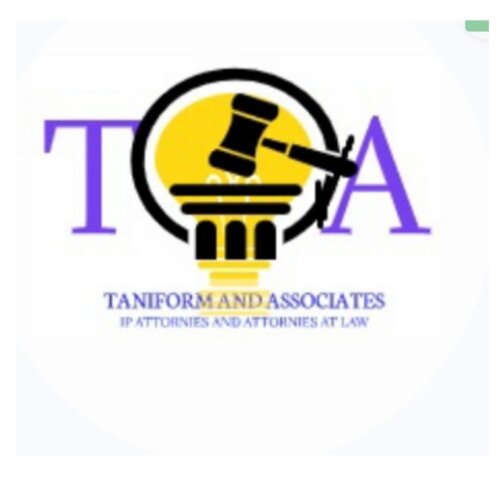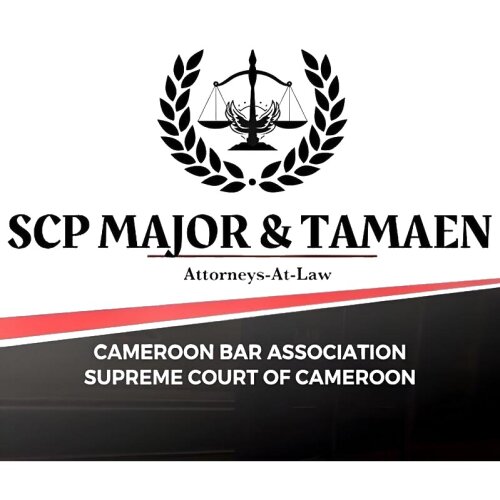Best Art & Cultural Property Law Lawyers in Yaoundé
Share your needs with us, get contacted by law firms.
Free. Takes 2 min.
List of the best lawyers in Yaoundé, Cameroon

Taniform and Associates IP Attorneys and Attorneys at Law
15 minutes Free ConsultationLegal guides written by CHI & Partners Law Firm:
- Ship Registration in Cameroon
About Art & Cultural Property Law in Yaoundé, Cameroon
Art & Cultural Property Law in Yaoundé, Cameroon, is a specialized field that focuses on the legal aspects surrounding the creation, ownership, protection, and transfer of art and cultural artifacts. This area of law aims to preserve Cameroon's rich cultural heritage while ensuring that artists and cultural institutions are protected by law. With a diverse cultural landscape, including traditional arts and contemporary movements, Yaoundé serves as a hub for artistic expression, necessitating robust legal frameworks to support and protect these assets.
Why You May Need a Lawyer
There are several situations where individuals or organizations may need legal assistance in the realm of Art & Cultural Property Law:
- Artists seeking to protect their intellectual property rights, including copyrights and trademarks.
- Collectors or museums involved in the acquisition or sale of cultural artifacts and needing assistance with legal compliance.
- Individuals or communities seeking to recover stolen or illegally exported cultural property.
- Organizations planning exhibitions or events that require contracts or handling of intellectual property rights.
- Resolving disputes over the ownership or authenticity of art pieces or cultural property.
Local Laws Overview
The legal framework in Cameroon regarding Art & Cultural Property Law includes several key regulations:
- Law No. 90/036 of 10 August 1990: This law regulates cultural property and aims to protect, conserve, and promote Cameroon's cultural heritage.
- Copyright Law: Ensures protection for creators, giving them exclusive rights to reproduce, distribute, and display their works.
- Export Regulations: Stringent rules around the export of cultural artifacts to prevent illegal trafficking and ensure proper documentation and permissions.
- International Conventions: Cameroon is a signatory to several international treaties, including UNESCO's Convention on the Means of Prohibiting and Preventing the Illicit Import, Export, and Transfer of Ownership of Cultural Property (1970), which reinforces national laws.
Frequently Asked Questions
What is considered cultural property in Cameroon?
Cultural property encompasses items of historical, artistic, or cultural significance, including artifacts, documents, and works of art that are integral to the cultural heritage of Cameroon.
How can artists protect their work from unauthorized use?
Artists can protect their work by registering copyrights, trademarks, or patents where applicable, and may seek legal advice to ensure their rights are enforceable nationally and internationally.
What should I do if I discover a piece of art whose ownership is disputed?
Consult with a lawyer who specializes in Art & Cultural Property Law to analyze the case and provide guidance on resolving ownership disputes, potentially through mediation or litigation.
Are there any restrictions on exporting cultural artifacts from Cameroon?
Yes, exporting cultural artifacts may require permits and adherence to specific regulations designed to prevent illegal export or trafficking of cultural heritage objects.
How do Cameroon's art laws handle forgery or counterfeit art?
Possession or sale of forged or counterfeit art is illegal, and perpetrators may face penalties including fines and imprisonment. Legal action can be taken against those responsible.
Can indigenous communities claim ownership of their cultural patrimony?
Yes, indigenous communities have certain rights to claim ownership and seek restoration of their cultural patrimony, often facilitated by local and international legal frameworks.
What are the penalties for trafficking cultural artifacts?
Penalties can be severe, involving heavy fines and imprisonment. Such cases are addressed under both national legislation and international law, depending on the scope of trafficking.
How can I verify the authenticity of an art piece?
Verification often involves expert appraisal, provenance documentation, and potentially scientific analysis. Legal experts can guide collectors through this verification process.
Is it possible to negotiate art loans between countries?
Yes, art loans can be negotiated between countries and often involve complex agreements to protect the interests of both the lender and the borrower. Legal advice can facilitate these agreements.
What legal support is available for hosting an art exhibition?
Legal support for hosting an art exhibition includes drafting contracts, negotiating licenses for artworks, and ensuring compliance with copyright and intellectual property laws.
Additional Resources
For those seeking further information, the following resources can be helpful:
- Ministry of Arts and Culture: The governmental body responsible for cultural policy and regulation in Cameroon.
- Cameroonian Association of Lawyers: Offers directories and resources to find experts in Art & Cultural Property Law.
- UNESCO Office in Cameroon: Provides guidance and support for international cultural property issues.
Next Steps
If you require legal assistance concerning Art & Cultural Property Law in Yaoundé, you should consider the following steps:
- Identify Your Needs: Clearly outline the specific legal issues or questions you have.
- Research Lawyers: Look for lawyers or law firms that specialize in Art & Cultural Property Law, considering factors such as experience, reputation, and fees.
- Initial Consultation: Schedule a consultation to discuss your case and understand the potential legal pathways available to you.
- Gather Documentation: Collect all relevant documents and information that pertain to your legal issue to assist your lawyer in providing accurate advice.
- Follow Professional Advice: Adhere to the guidance provided by your legal counsel to effectively address your legal matters.
Lawzana helps you find the best lawyers and law firms in Yaoundé through a curated and pre-screened list of qualified legal professionals. Our platform offers rankings and detailed profiles of attorneys and law firms, allowing you to compare based on practice areas, including Art & Cultural Property Law, experience, and client feedback.
Each profile includes a description of the firm's areas of practice, client reviews, team members and partners, year of establishment, spoken languages, office locations, contact information, social media presence, and any published articles or resources. Most firms on our platform speak English and are experienced in both local and international legal matters.
Get a quote from top-rated law firms in Yaoundé, Cameroon — quickly, securely, and without unnecessary hassle.
Disclaimer:
The information provided on this page is for general informational purposes only and does not constitute legal advice. While we strive to ensure the accuracy and relevance of the content, legal information may change over time, and interpretations of the law can vary. You should always consult with a qualified legal professional for advice specific to your situation.
We disclaim all liability for actions taken or not taken based on the content of this page. If you believe any information is incorrect or outdated, please contact us, and we will review and update it where appropriate.










